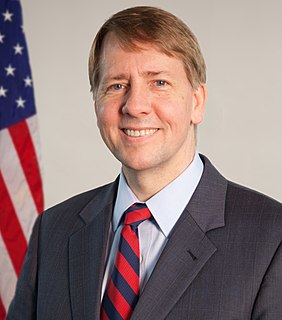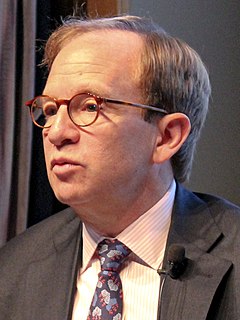A Quote by Christina Romer
Recent research suggests that New Deal programs may actually have had their primary impact on the economy by influencing consumer and business expectations of future growth and inflation.
Related Quotes
Significant changes in the growth rate of money supply, even small ones, impact the financial markets first. Then, they impact changes in the real economy, usually in six to nine months, but in a range of three to 18 months. Usually in about two years in the US, they correlate with changes in the rate of inflation or deflation."
"The leads are long and variable, though the more inflation a society has experienced, history shows, the shorter the time lead will be between a change in money supply growth and the subsequent change in inflation.
The impact of QE on generating more lending by Wall Street to Main Street and in generating more employment and increasing overall investment in the economy is quite modest. QE probably limited the initial collapse of the economy in 2008, and likely had a very small positive impact on economic growth, but its broader impact on jobs and growth in the economy seems not very big.
The reality is that business and investment spending are the true leading indicators of the economy and the stock market. If you want to know where the stock market is headed, forget about consumer spending and retail sales figures. Look to business spending, price inflation, interest rates, and productivity gains.
I do think that saving the economy was a pretty big deal. We did a lot of stuff early that ended up having an impact. I believe that the work we've done in moving our energy future in a cleaner direction is going to stick even if some of the individual steps that we took are reversed by future administrations. I think that it's embedded itself in the economy.
In a consumer society, expectations dare not plateau, because a growing economy depends on rising expectations... The more we let our level of contentment be determined by outside factors-a new car, fashionable clothes, a prestigious career, social status-the more we relinquish control over our own happiness.
Our consumer-oriented economy wouldn't survive without economic growth. The whole mechanism depends on invention and insinuation of novelties, arousing new wants, seduction and temptation. This is the problem we face - much more than recapitalizing the banks. The question is: Is that kind of economy sustainable?
Foremost is the principle that the purpose of consumer research is to understand the customer's needs and wishes, and thus design product and service that will provide better living for him in the future. A second principle is that no one can guess the future loss of business from a dissatisfied customer.




































